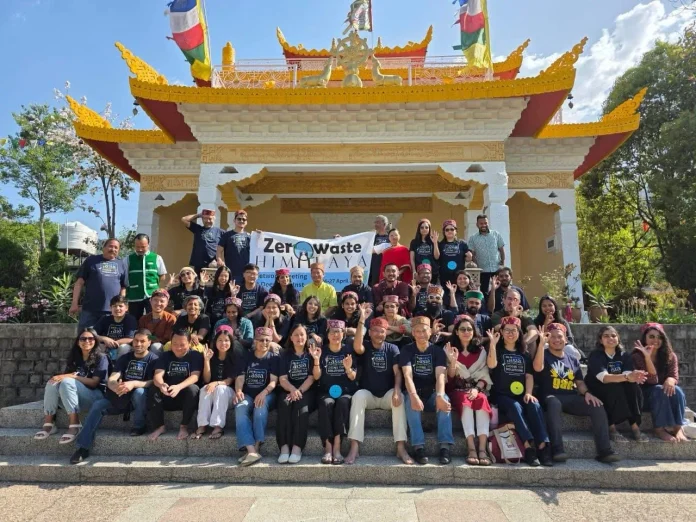SENAPATI, May 3: The Good Samaritan Foundation, based in Senapati, participated in the Zero Waste Himalaya Network Meet held from April 24 to 26 at the Deer Park Institute, Bir, Himachal Pradesh. The gathering brought together 48 participants from 27 organizations working across the Himalayan region in India, Nepal, and Bhutan. The event focused on the growing waste crisis in the fragile Himalayan region.
The meet focused on the urgent need for effective and mountain-sensitive waste management strategies. Participants, shared concerns over policy inadequacies and limited resource allocation, which fail to address the socio-ecological fragility of the Himalayan region.
The workshop emphasized shifting the focus from mere end-of-life waste management to a comprehensive life-cycle approach—including extraction, production, marketing, and consumption. A key issue raised was the poor implementation of Extended Producer Responsibility (EPR) policies in the Himalayas. The role of waste worker inclusion, just transition, and the intersection of waste with climate, food, and biodiversity were also discussed from a mountain-specific lens.
The event also reflected on the journey of the Zero Waste Himalaya movement, which began at the same venue in 2010 with the Bir Declaration. Since then, member organizations have led numerous campaigns and initiatives toward a clean and waste-free Himalaya.
Organized under the Zero Waste Himalaya platform, the meet aimed to strengthen and institutionalize the regional zero waste movement. Among the participating organizations were: Amyaa NGO, Dhauladhar Cleaners, Bhutan Ecological Society, Break Free From Plastic, Darjeeling Himalaya Initiative, Deer Park Institute, DLR Prerna, Ecotourism & Conservation Society of Sikkim (ECOSS), GAIA Asia Pacific, Good Samaritan Foundation – Senapati, HECAF 360, Integrated Mountain Initiative, Khangchendzonga Conservation Committee (KCC), LIFE, Little Green World, The Midway Journey, North East Waste Collective, Place of Possibilities, Rural Development Department – Government of Sikkim, Samdrup Jongkhar Initiative, SaveTheHills, THANAL, The Green Circle, TIEEDI, University of Kashmir, Youth Mission for Clean River, and YouthNet.
The meet was supported by GAIA Asia Pacific and Break Free From Plastic (BFFP), global alliances advocating for the elimination of plastic pollution and promoting circular, community-centered solutions.
Findings from the Himalayan Cleanup Campaign 2024, revealed that:
• 70% of plastic collected during cleanups was non-recyclable and held no market value.
• Over 80% of the waste came from single-use food and beverage packaging.
• The data exposed deep flaws in production and consumption systems.
Based on these findings, the group resolved to continue The Himalayan Clean-Up (THC) campaign in 2025, coordinated by Zero Waste Himalaya and the Integrated Mountain Initiative. A THC Organising Committee was formed during the meet to lead THC 2025, scheduled for May 26 to June 5.
Participants asserted that the Himalayan waste crisis is rooted in production systems rather than just post-consumer disposal and called for a paradigm shift in waste policy. While behavior change remains essential, systemic, decentralized solutions and policy interventions were identified as critical to long-term impact.
Despite the diversity of regions represented, all attendees identified shared challenges, reinforcing the need for a unified Himalayan platform. To that end, the Zero Waste Himalaya Alliance was formally established as a structured body to drive the movement forward. An organising committee will soon define its vision, mission, and principles.

